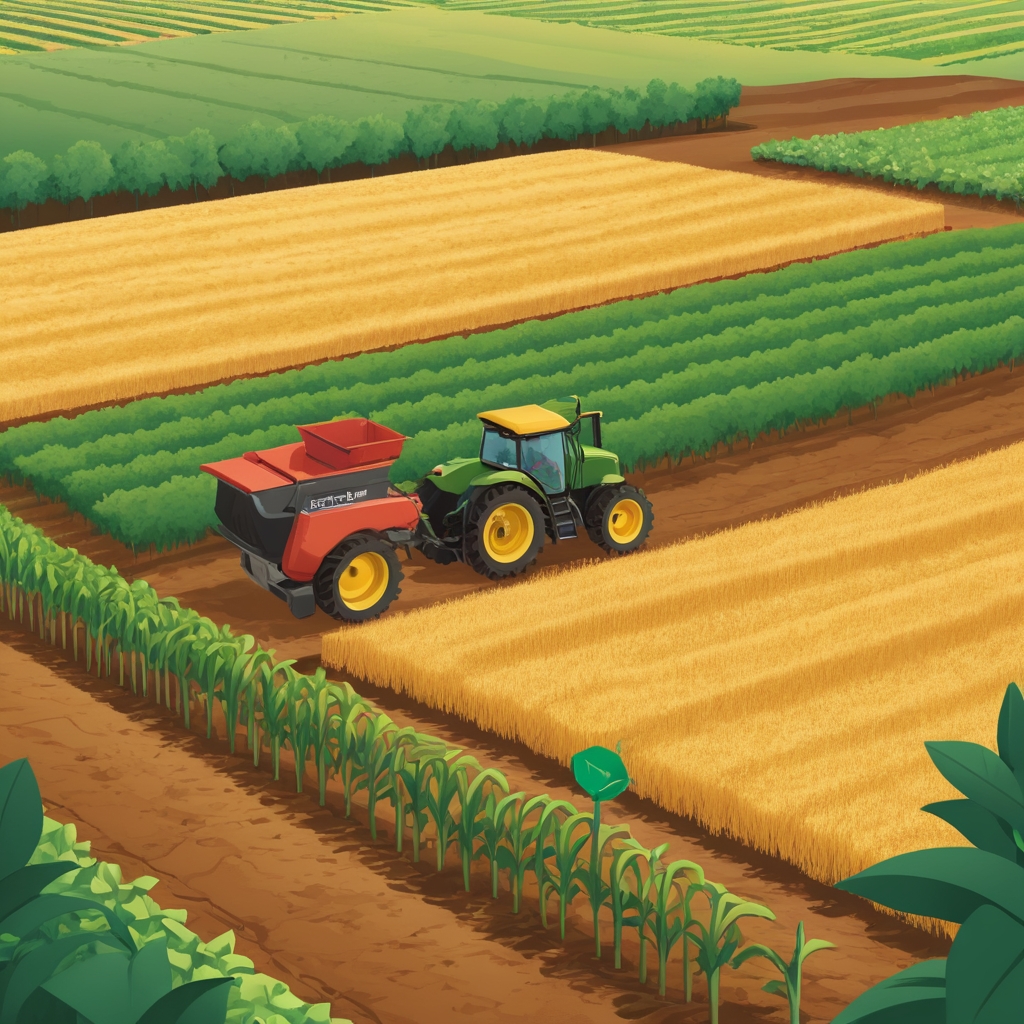Physical address:
5501 Stockdale HWY #9442
Bakersfield, CA 93389
Agronomy, often referred to as the science of soil management and crop production, is a field with boundless opportunities, touching everything from sustainable farming to food security. As the global population grows and climate change intensifies, the demand for agronomists who understand how to manage natural resources efficiently has skyrocketed. Here’s a deep dive into the numerous opportunities agronomy presents, from academia to industry, and how this evolving field can impact the future.
1. Research and Development
One of the most promising areas in agronomy is research and development. As an agronomist, you have the chance to work with universities, government agencies, and private companies to develop innovative solutions to agricultural challenges. Whether it’s improving crop resilience, enhancing soil fertility, or exploring new technologies like precision agriculture, agronomists play a crucial role in advancing agricultural science. With the rise of climate-resilient crops and sustainable farming practices, the opportunities for breakthroughs are endless.
2. Sustainable Agriculture
Sustainable agriculture is more important now than ever. Agronomists are at the forefront of developing farming practices that minimize environmental impact while ensuring that the world’s growing population has enough food. This involves soil health management, reducing chemical inputs, water conservation, and optimizing crop yield through natural means. As sustainability becomes a global priority, opportunities in this field are expanding, offering agronomists the chance to make a meaningful difference in preserving our planet.
3. Food Security and Global Development
Agronomy is key to addressing global food security. With populations increasing and arable land decreasing, agronomists are essential in developing new ways to grow more food in less space. Working with organizations such as the Food and Agriculture Organization (FAO) or various non-profits can allow you to have a direct impact on communities in need. Agronomists involved in international development work on strategies to improve crop productivity in regions plagued by food shortages and ensure long-term agricultural sustainability.
4. Precision Agriculture
With the integration of technology, agronomy is evolving into a more data-driven science. Precision agriculture, which uses GPS technology, drones, and IoT devices, allows farmers to monitor and manage their crops in real-time. Agronomists specializing in precision agriculture help optimize inputs like water, fertilizer, and pesticides, making farming more efficient and less wasteful. Opportunities in this high-tech aspect of agriculture are expanding rapidly, offering a modern, technology-focused career path.
5. Agronomy Consulting
Many farmers and agricultural businesses rely on the expertise of agronomy consultants to improve their crop yields and manage their resources better. Agronomy consultants are highly valued for their deep knowledge of plant biology, soil science, and crop management. Whether working independently or with firms, agronomy consultants play a vital role in advising on best practices for farming operations, sustainability, and profitability. This is an ideal opportunity for those who prefer working with diverse clients and offering tailored solutions.
6. Seed and Crop Production Companies
The private sector is brimming with opportunities for agronomists, particularly in seed and crop production companies. These companies rely on agronomists to conduct field trials, develop new crop varieties, and ensure the health of large-scale production. Careers in these areas can be lucrative, offering positions that blend scientific research with practical applications in farming.
7. Environmental and Conservation Efforts
With a growing focus on environmental conservation, agronomy careers are extending into natural resource management and conservation programs. Agronomists work with government agencies and environmental organizations to restore degraded lands, protect biodiversity, and manage ecosystems. This area allows agronomists to contribute to large-scale environmental projects that mitigate climate change effects while promoting sustainable land use.
8. Agribusiness Management
Agronomists are also finding opportunities in the management side of agriculture. Agribusiness management involves overseeing agricultural operations, from small family-owned farms to large corporate enterprises. As the industry becomes more complex, with issues like global supply chains and trade regulations, agronomists with business acumen are highly sought after. This career path offers a balance of scientific knowledge and business strategy, perfect for those interested in leadership roles within the agricultural sector.
9. Education and Training
As agronomy continues to grow in importance, so does the need for qualified educators. Agronomy professors and trainers are essential for developing the next generation of agronomists. Opportunities in academic institutions and extension services allow professionals to share their knowledge and passion with students, farmers, and agricultural businesses. This career path is ideal for those who want to make a long-term impact through education and outreach programs.
Conclusion: A Field with Boundless Possibilities
Agronomy is no longer confined to traditional farming roles. The intersection of technology, environmental conservation, food security, and sustainable practices has opened up numerous pathways for those in the field. Whether you’re passionate about research, education, technology, or business, agronomy offers diverse career options with the potential to influence the future of global agriculture.
In short, agronomy isn’t just about growing crops—it’s about nurturing a better future for humanity and the planet. The possibilities in this field are vast, and as challenges grow, so do the opportunities for agronomists to solve some of the most pressing issues facing our world.




